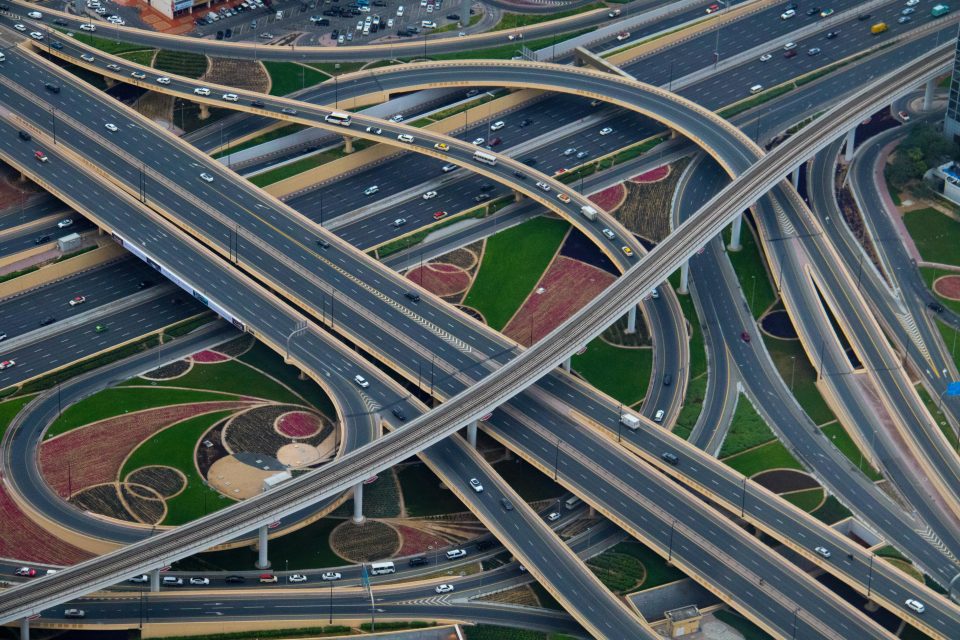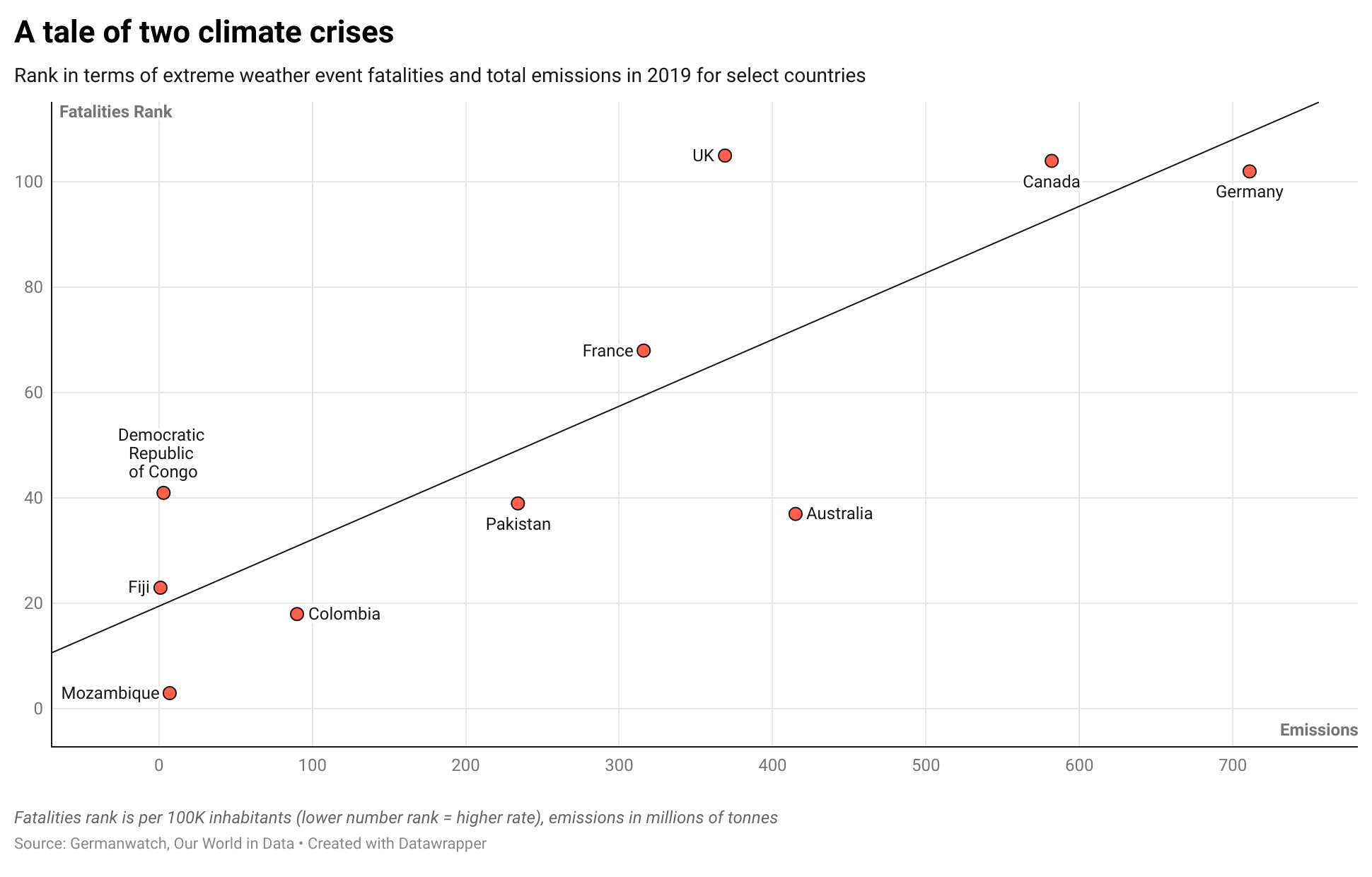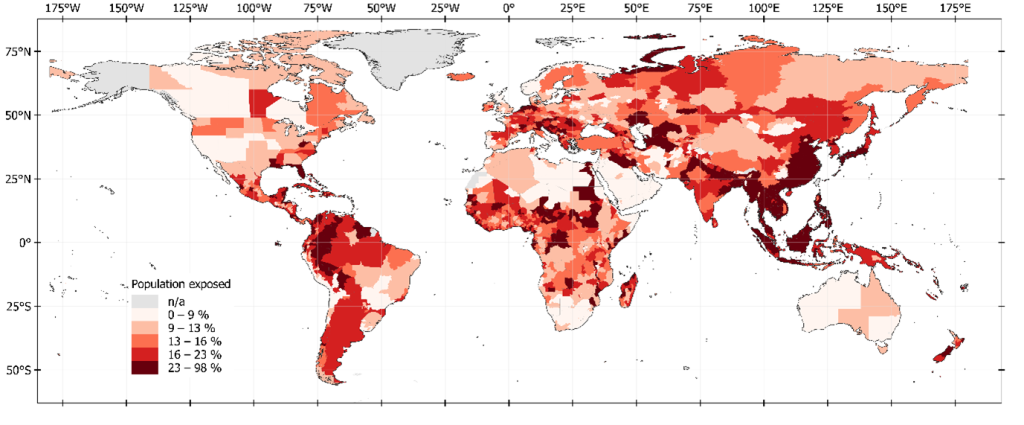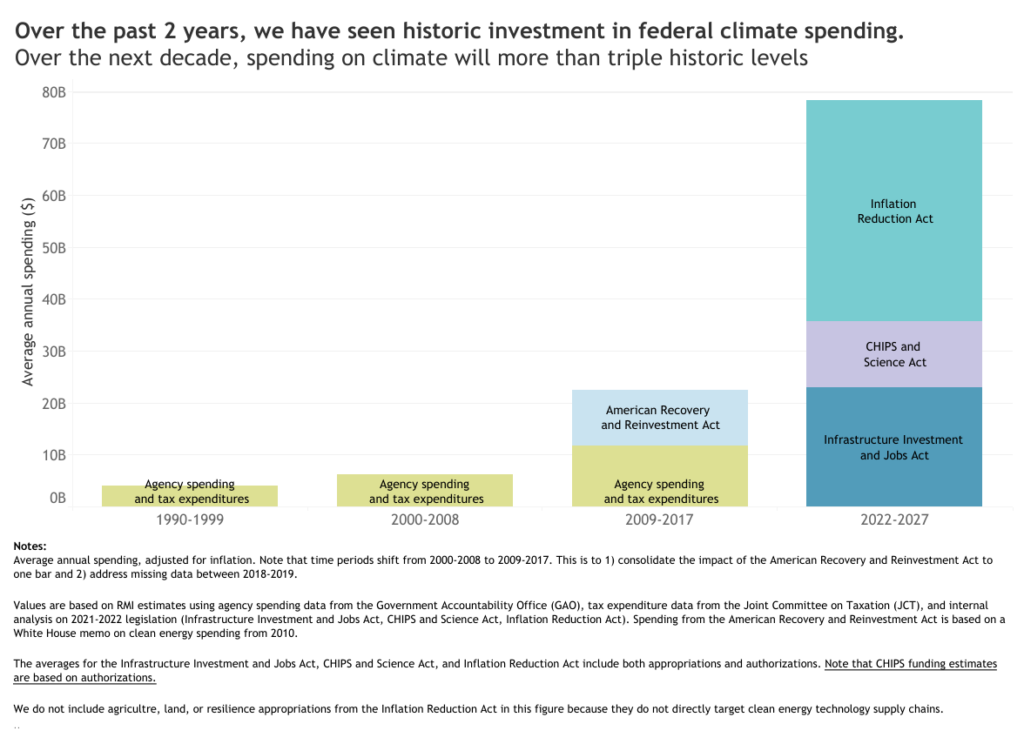- This weekly roundup brings you some key climate change stories from the past seven days.
- Top stories this week: Fuel-efficient driving; Five inspiring ecovillages; Colonialism and climate change; Rising flood risk; Three new US climate laws.
1. Fuel-efficient routing: Here’s how you can make your road journey more eco-friendly
Matt Brittin, President of Business and Operations for Google in Europe, Middle East and Africa explains Google Maps’ new fuel-efficient routing feature. Vehicles on the road account for nearly three-quarters of transportation CO2 emissions.
But, Google’s new tool means that users can now not only see the fastest route, but also the most sustainable route. The tool uses AI to compare all the different possible routes, accounting for traffic, road incline, road type and more.
Learn more about Google’s new tool.
2. 5 of the world’s coolest ecovillages
Gaining wider popularity in the 1960s and 70s, ecovillages are communities designed to be sustainable from an environmental, social and economic perspective. From locally grown and managed food sources to hosting a variety of renewable energy sources, these villages are grounded in having an awareness of their environmental impact.
Take the Findhorn EcoVillage in Scotland for example. This ecovillage was established in the 1980s, with its founders being involved in establishing the Global Ecovillage Network. The village has one of the lowest ecological footprints of any community in the developed world, and half the UK average.
Explore four other innovative ecovillages.
3. What does colonialism have to do with climate change?
A German non-profit’s list of the 10 countries most affected by climate change-related extreme weather events during the first two decades of this century includes eight former colonies. According to the IPCC, colonialism leaves behind ‘development challenges‘ that heighten vulnerability to climate impacts.
Another injustice of colonialism is that countries with lower emissions are disproportionally affected by extreme weather events, often with higher fatality rates than heavy emitters.
Read more on the link between colonialism and climate change.
Our planet is straining under the burden of a global population of nearly 8 billion people.
The World Economic Forum’s Centre for Nature and Climate accelerates actions on climate change and environmental sustainability, food systems, the circular economy and value chains, and the future of international development.
- Through the Global Plastic Action Partnership, we are bringing together government, business and civil society to shape a more sustainable world through the eradication of plastic pollution.
- The centre is championing Nature-Based Solutions. Global companies are working together through the 1t.org initiative to support 1 trillion trees by 2030. Since September 2021, over 30 companies have committed to conserve, restore and grow more than 3.6 billion trees in over 60 countries.
- Through a partnership with the US Special Presidential Envoy for Climate John Kerry and over 30 global businesses, the Forum is encouraging companies to join the First Movers Coalition and invest in innovative green technologies so they are available for massive scale-up by 2030 to enable net-zero emissions by 2050 at the latest.
- The centre is also bringing leaders together to make commitments to a circular economy approach. Globally, the Scale360° initiative will reduce the environmental impact of value chains within the fashion, food, plastics and electronics industries – a significant step in making the $4.5 trillion circular economy opportunity a reality. The African Circular Economy Alliance is funding circular economy entrepreneurs and circular economy activities in countries including Rwanda, Nigeria and South Africa. In China, the Forum’s Circular Electronics in China project is helping companies reduce and recycle 50% of e-waste by 2025.
- The Forum is also crowdsourcing solutions to the climate crisis through its open innovation platform, UpLink. Since 2020 this digital space has welcomed over 40,000 users who are working on over 30 challenges including reducing plastic ocean pollution, scaling efforts to conserve, restore and grow 1 trillion trees and innovating the production and processing of aquatic foods.
Contact us for more information on how to get involved.
4. Flood risk affects over a billion people. Climate change could make it worse
An estimated 1.81 billion people, or 23% of the world population, face significant flood risk, with low- and middle-income countries making up 89% of those at risk. The lowest income countries are also least prepared or able to deal effectively with such risks – risks that are rising as a result of climate change and rapid urbanization.
At 668 million people, East Asia has the highest number of flood-exposed people, corresponding to about 28% of its total population.
Learn more about flood risk around the world.
5. Three laws will triple US climate change spending over the next decade
The Infrastructure Investment and Jobs Act, CHIPS and Science Act, and the Inflation Reduction Act include more than $500 billion of climate spending – on technology and clean energy.
From giving tax refief to funding new battery chemistry and more efficient solar panels, these three laws will help the US tackle climate change.
Discover more about the potential impacts of these three laws.





